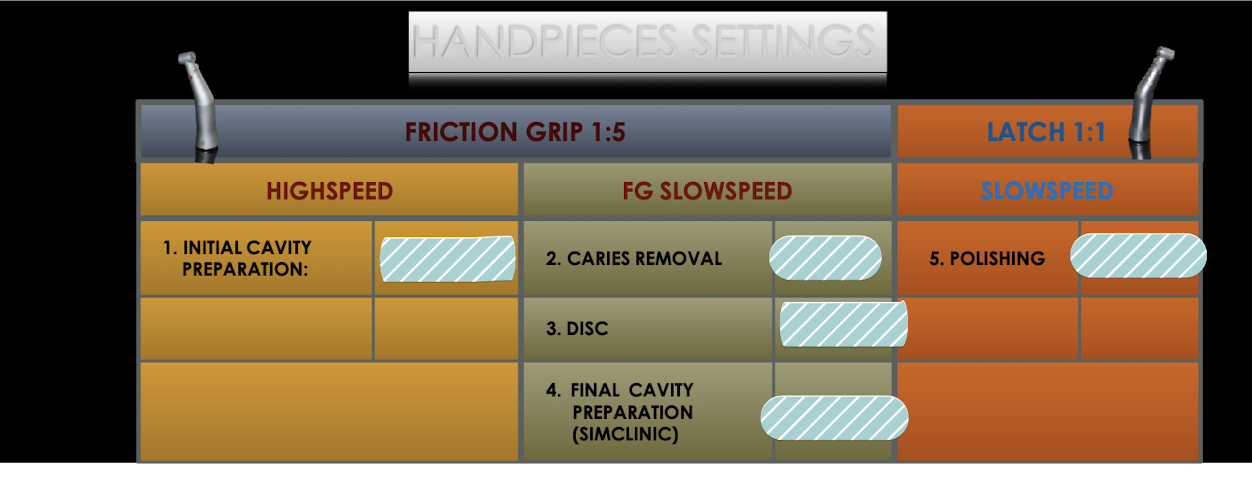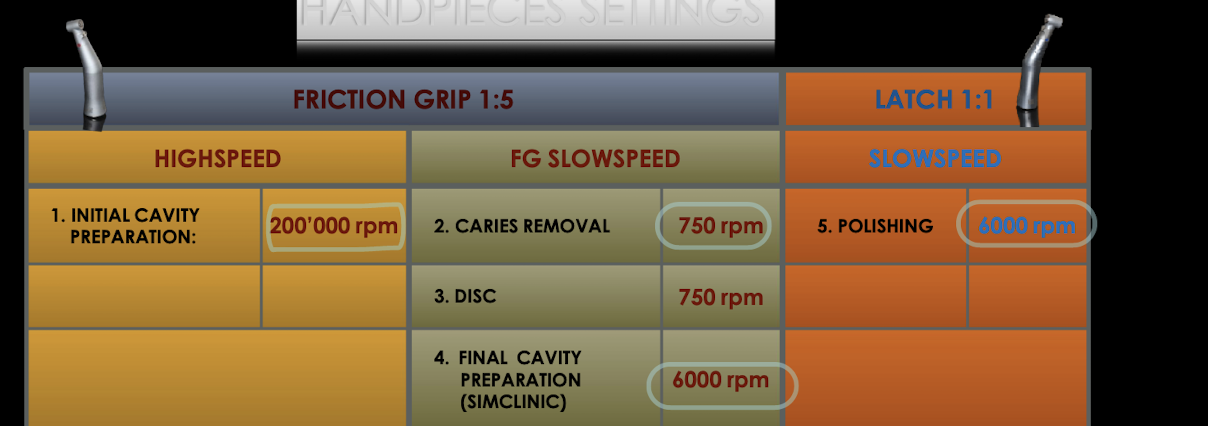class V glass ionomer
1/20
There's no tags or description
Looks like no tags are added yet.
Name | Mastery | Learn | Test | Matching | Spaced |
|---|
No study sessions yet.
21 Terms
Class V
Where? Most common present on?
Gingival 1/3 of facial or lingual of any anterior or posterior tooth
more common on facial surfaces
5 indications for class V restorations
Abrasion, erosion, caries, prosthetic considerations, abfraction
Very sensitive and/or large amounts of tooth structure missing?
no symptoms or minimal damage ?
If sensitivity is main complaint and accompanied by minimal amount of tooth loss, ?
Restored
no treatment
Use desensitizing agent, such as fluoride, strontium chloride, silver nitrate
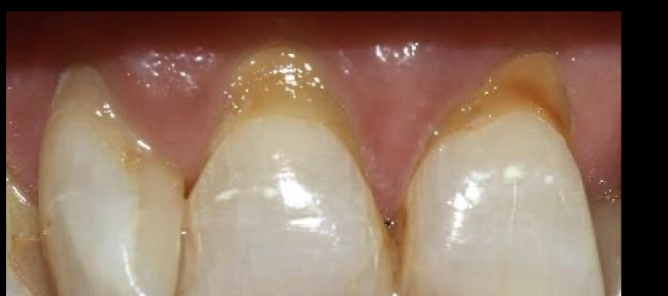
carious or non?
non
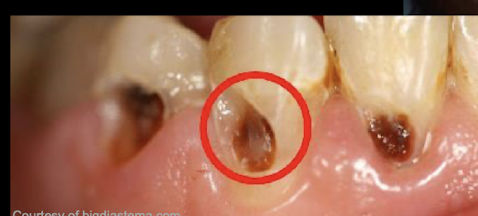
carious or non?
carious
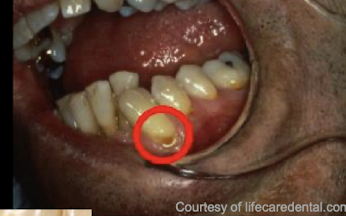
carious or non?
carious
Gen principles of class V glass ionomer preps
All friable/weakened (unsupported) enamel should be ?
Do not extend to ?
When possible, preserve structure beyond ?
__ curves, no ?
Pulpal depth __ bulk for strength (__ mm from DEJ)
__ degrees cavosurface margin (no _)
bur should always be __ to surface you are cutting, and _ to enamel rods
removed
Unaffected surfaces
line angles
smooth, sharp edges
uniform, 0.5 mm
90, bevels
perpendicular, parallel
Class V black’s prep:
__ shape
kidney bean
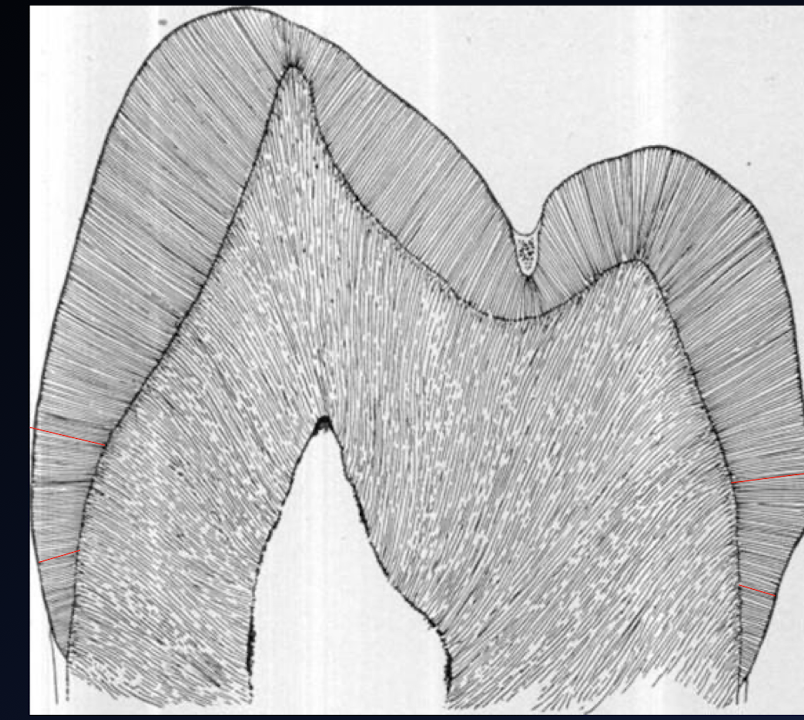
enamel rods
Class V - Blacks Prep
Internal Form
All external walls are __ to the external tooth structure, thereby _ the enamel rods
Extend the prep incisally, gingivally, mesially, and distally until all external walls are positioned in sound tooth structure at pulpal depths ranging from ___ mm at gingival wall to __ mm at incisal/occlusal wall
Axial wall
Depth of __ inside the DEJ
Follows the contour of the ?
__ mesio-distally, leaves dentin bulk for ?
Roughly __ to external tooth surface occluso-gingivally
orientation of walls
All four walls must meet the cavosurface at __ degrees
All walls will __ from axial wall to the cavosurface
perpendicular, parallel
0.75 mm to 1.25 mm
0.5 mm
DEJ
convex, pulp protection
parallel
90 degrees
Diverge
Do we need retention in class V glass ionomers restoration?
No
Class V basics: outline form (sim lab) vs clinic
Extend to line angles, clinical extend to only enough to remove caries + unsupported enamel
Class V outline form: in clinical situations:
mesial, distal, occlusal/incisal, ginigval extensions will purely be defined by ?
Taking into consideration resistance form, retention form, convenience form
extent of lesion
Class V basics: resistance form
__ internal line angles
__ axial wall follows ? (?)
Mesial, distal, gingival, and incisal walls ___ to enamel rods and perpendicular to external tooth surface (slight divergence)
Axial depth at ___ mm incisally//occlusally and __ gingival
rounded
smooth, curvature of tooth, (convex)
Parallel
1-1.25 mm, 0.75 -1.0 mm gingival
Class V basics:
Convenience form (clinical): cavosurface margin extensions __ to place restorative material
sufficient
class V GI prep:
Establish outline form:
Use a #____ or #___ bur for initial access and to develop __ internal line angles
Use a __L carbide bur to develop _ prep of walls
Extend to mesial and distal __ __
___, flowing __ (kidney bean shape)
Positioned __ mm supragingival, _ incisal/occlusal-gingival height (dependent on tooth)
Establish __ axial wall
Axial depth at ___ mm incisally/occlusally and __ mm gingival
#2, #330, round
169L, divergent
Line angles
Smooth, curves
1 mm, 1.5-2 mm
convex axial wall
1-1.25 mm, 0.75-1mm
In clinc what to you do (not in sim)? WHy?
conditioner for 10 s: cleaning effect, rinse, remove excess moisture with high speed suction, then form prep with microbrush to leave moist surface
In natural teeth, the dentin should be ___
In sim clinic, the prep should be __
moist, dry
RMGI working time
3 min + 15 s
Light cure for how long?
20 seconds (two beeps)
